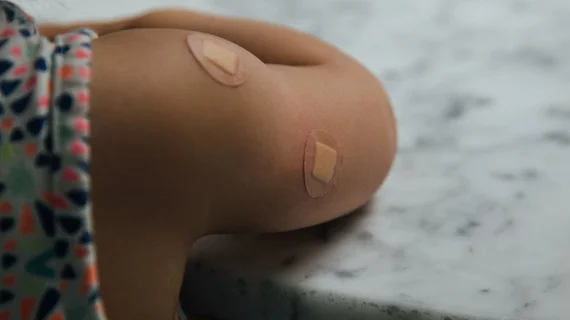Measles coiled to do children far more harm than COVID-19
Unless the world takes action now, millions of children will contract measles next year. Hundreds of thousands could die, and much of the suffering will have been preventable.
The warning comes by way of commentary running in The Lancet.
The authors, led by Kim Mulholland, MD, of the Murdoch Children’s Research Institute in Australia, note that measles was making a comeback even before COVID-19. The WHO recorded 9.8 million cases and 207,000 deaths in 2019—a 50% jump from three years prior.
That spike was driven by sluggish measles vaccination rates. The worldwide COVID crisis has only exacerbated the situation.
“The COVID-19 pandemic has had a profound effect on global immunization and control of vaccine-preventable diseases, with vaccination campaigns paused in the early months of 2020 and routine immunization services greatly disrupted in many countries,” the authors write. “However, modelled evidence suggests that the potential risks of delaying vaccination outweigh the risks associated with COVID-19.”
Mulholland and colleagues point out that, by now, most countries have gotten back to routinely immunizing children against measles and other vaccine-preventable diseases. Even so, 94 million children in 26 countries have missed scheduled measles doses.
The WHO, for which Mulholland chairs a group concentrating on measles and rubella, has a plan in place for strengthening routine immunization and surveillance.
Solutions are thus in place to “end the cycle of inadequate immunization and outbreaks of the past decade,” the authors write. “[But] without concerted efforts now, it is likely that the coming years will see an increase in measles and its severe, frequently fatal, complications.”
The article is posted in full for free.

